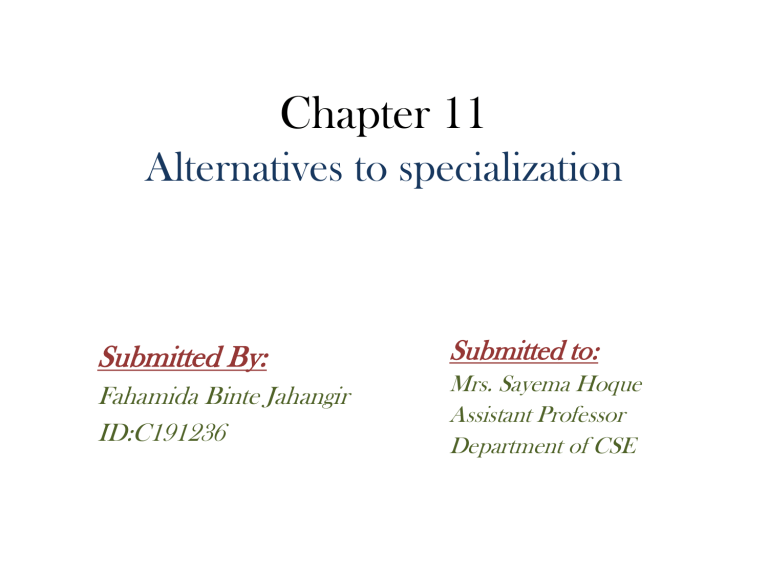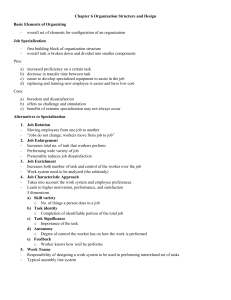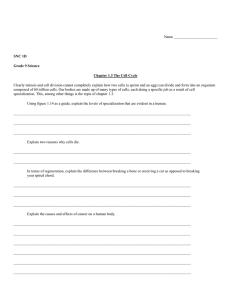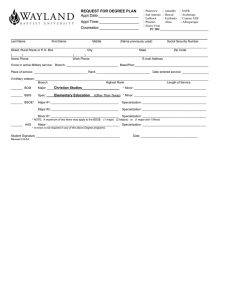
Chapter 11 Alternatives to specialization Submitted By: Submitted to: Fahamida Binte Jahangir ID:C191236 Mrs. Sayema Hoque Assistant Professor Department of CSE Alternatives to specialization There are five alternative approaches for specialization .They are :- Job rotation : Job rotation involves systematically moving employees from one job to another. A worker in a warehouse might unload trucks on Monday, carry incoming inventory to storage on Tuesday, verify invoices on Wednesday, pull outgoing inventory from storage on Thursday, and load trucks on Friday. Thus the jobs do not change; instead, workers move from job to job. Job enlargement: Job enlargement introduces employees to a variety of responsibilities and differentiates their workdays. So, all workers perform a wide variety of tasks, which reduces the level of job dissatisfaction. Job enrichment: Job enrichment both increases an employee's responsibilities and allows them more power over the jobs they perform. Employees who have control over their own work may be more efficient, eliminate unnecessary tasks, take effective shortcuts and increase their performance. Managers may remove certain barriers to create an environment where employees have the ability to make decisions about the context and content of their jobs. Alternatives to specialization Job characteristics approach: This approach attempts to design jobs with the goal of increasing their motivational qualities. It considers the work system and employee characteristics .The job characteristics approach suggests that jobs should be diagnosed and improved along five core dimensions: Skill variety - The extent to which the job requires an employee to use their highlevel abilities Autonomy - How much freedom an employee has to decide how they complete their responsibilities Task identity - The degree to which an employee completes a task from beginning to end Feedback - Measures whether a person learns how effective they are at their work Task significance - Indicates whether a task affects other people's work, health or well-being Work teams: In this approach, a manager may assign a group of employees called a work team the responsibility of dividing tasks between themselves. The work might flow from one employee to the next, where each person has a defined job to perform. With this system, the team has complete authority over its performance.



